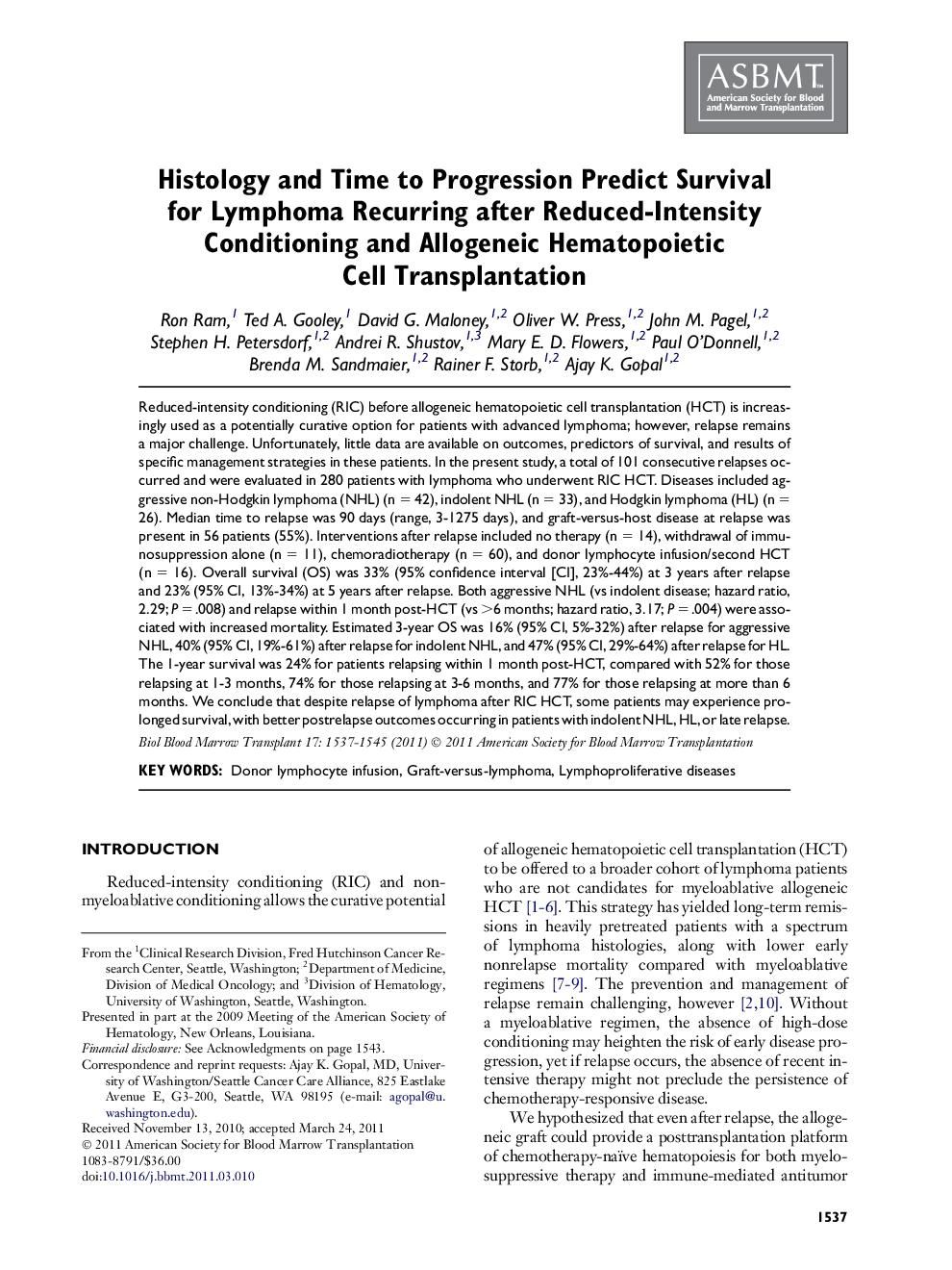| Article ID | Journal | Published Year | Pages | File Type |
|---|---|---|---|---|
| 2105477 | Biology of Blood and Marrow Transplantation | 2011 | 9 Pages |
Reduced-intensity conditioning (RIC) before allogeneic hematopoietic cell transplantation (HCT) is increasingly used as a potentially curative option for patients with advanced lymphoma; however, relapse remains a major challenge. Unfortunately, little data are available on outcomes, predictors of survival, and results of specific management strategies in these patients. In the present study, a total of 101 consecutive relapses occurred and were evaluated in 280 patients with lymphoma who underwent RIC HCT. Diseases included aggressive non-Hodgkin lymphoma (NHL) (n = 42), indolent NHL (n = 33), and Hodgkin lymphoma (HL) (n = 26). Median time to relapse was 90 days (range, 3-1275 days), and graft-versus-host disease at relapse was present in 56 patients (55%). Interventions after relapse included no therapy (n = 14), withdrawal of immunosuppression alone (n = 11), chemoradiotherapy (n = 60), and donor lymphocyte infusion/second HCT (n = 16). Overall survival (OS) was 33% (95% confidence interval [CI], 23%-44%) at 3 years after relapse and 23% (95% CI, 13%-34%) at 5 years after relapse. Both aggressive NHL (vs indolent disease; hazard ratio, 2.29; P = .008) and relapse within 1 month post-HCT (vs >6 months; hazard ratio, 3.17; P = .004) were associated with increased mortality. Estimated 3-year OS was 16% (95% CI, 5%-32%) after relapse for aggressive NHL, 40% (95% CI, 19%-61%) after relapse for indolent NHL, and 47% (95% CI, 29%-64%) after relapse for HL. The 1-year survival was 24% for patients relapsing within 1 month post-HCT, compared with 52% for those relapsing at 1-3 months, 74% for those relapsing at 3-6 months, and 77% for those relapsing at more than 6 months. We conclude that despite relapse of lymphoma after RIC HCT, some patients may experience prolonged survival, with better postrelapse outcomes occurring in patients with indolent NHL, HL, or late relapse.
